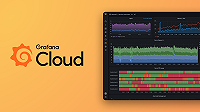Important: This documentation is about an older version. It's relevant only to the release noted, many of the features and functions have been updated or replaced. Please view the current version.
otelcol.receiver.opencensus
otelcol.receiver.opencensus accepts telemetry data via gRPC or HTTP
using the OpenCensus format and
forwards it to other otelcol.* components.
NOTE:
otelcol.receiver.opencensusis a wrapper over the upstream OpenTelemetry Collectoropencensusreceiver from theotelcol-contribdistribution. Bug reports or feature requests will be redirected to the upstream repository, if necessary.
Multiple otelcol.receiver.opencensus components can be specified by giving them
different labels.
Usage
otelcol.receiver.opencensus "LABEL" {
output {
metrics = [...]
logs = [...]
traces = [...]
}
}Arguments
otelcol.receiver.opencensus supports the following arguments:
cors_allowed_origins are the allowed CORS origins for HTTP/JSON requests.
An empty list means that CORS is not enabled at all. A wildcard (*) can be
used to match any origin or one or more characters of an origin.
The “endpoint” parameter is the same for both gRPC and HTTP/JSON, as the protocol is recognized and processed accordingly.
To write traces with HTTP/JSON, POST to [address]/v1/trace. The JSON message format parallels the gRPC protobuf format. For details, refer to its OpenApi specification.
Note that max_recv_msg_size, read_buffer_size and write_buffer_size are formatted in a way so that the units are included
in the string, such as “512KiB” or “1024KB”.
Blocks
The following blocks are supported inside the definition of
otelcol.receiver.opencensus:
The > symbol indicates deeper levels of nesting. For example, grpc > tls
refers to a tls block defined inside a grpc block.
tls block
The tls block configures TLS settings used for a server. If the tls block
isn’t provided, TLS won’t be used for connections to the server.
The following arguments are supported:
If reload_interval is set to "0s", the certificate never reloaded.
The following pairs of arguments are mutually exclusive and can’t both be set simultaneously:
ca_pemandca_filecert_pemandcert_filekey_pemandkey_file
If cipher_suites is left blank, a safe default list is used.
Refer to the Go Cipher Suites documentation for a list of supported cipher suites.
client_ca_file sets the ClientCA and ClientAuth to RequireAndVerifyClientCert in the TLSConfig.
Refer to the Go TLS documentation for more information.
keepalive block
The keepalive block configures keepalive settings for connections to a gRPC
server.
keepalive doesn’t support any arguments and is configured fully through inner
blocks.
server_parameters block
The server_parameters block controls keepalive and maximum age settings for gRPC
servers.
The following arguments are supported:
enforcement_policy block
The enforcement_policy block configures the keepalive enforcement policy for
gRPC servers. The server will close connections from clients that violate the
configured policy.
The following arguments are supported:
debug_metrics block
The debug_metrics block configures the metrics that this component generates to monitor its state.
The following arguments are supported:
disable_high_cardinality_metrics is the Grafana Alloy equivalent to the telemetry.disableHighCardinalityMetrics feature gate in the OpenTelemetry Collector.
It removes attributes that could cause high cardinality metrics.
For example, attributes with IP addresses and port numbers in metrics about HTTP and gRPC connections are removed.
Note
If configured,
disable_high_cardinality_metricsonly applies tootelcol.exporter.*andotelcol.receiver.*components.
level is the Alloy equivalent to the telemetry.metrics.level feature gate in the OpenTelemetry Collector.
Possible values are "none", "basic", "normal" and "detailed".
output block
The output block configures a set of components to forward resulting telemetry data to.
The following arguments are supported:
You must specify the output block, but all its arguments are optional.
By default, telemetry data is dropped.
Configure the metrics, logs, and traces arguments accordingly to send telemetry data to other components.
Exported fields
otelcol.receiver.opencensus does not export any fields.
Component health
otelcol.receiver.opencensus is only reported as unhealthy if given an invalid
configuration.
Debug information
otelcol.receiver.opencensus does not expose any component-specific debug
information.
Example
This example forwards received telemetry data through a batch processor before finally sending it to an OTLP-capable endpoint:
otelcol.receiver.opencensus "default" {
cors_allowed_origins = ["https://*.test.com", "https://test.com"]
endpoint = "0.0.0.0:9090"
transport = "tcp"
max_recv_msg_size = "32KB"
max_concurrent_streams = "16"
read_buffer_size = "1024KB"
write_buffer_size = "1024KB"
include_metadata = true
tls {
cert_file = "test.crt"
key_file = "test.key"
}
keepalive {
server_parameters {
max_connection_idle = "11s"
max_connection_age = "12s"
max_connection_age_grace = "13s"
time = "30s"
timeout = "5s"
}
enforcement_policy {
min_time = "10s"
permit_without_stream = true
}
}
output {
metrics = [otelcol.processor.batch.default.input]
logs = [otelcol.processor.batch.default.input]
traces = [otelcol.processor.batch.default.input]
}
}
otelcol.processor.batch "default" {
output {
metrics = [otelcol.exporter.otlp.default.input]
logs = [otelcol.exporter.otlp.default.input]
traces = [otelcol.exporter.otlp.default.input]
}
}
otelcol.exporter.otlp "default" {
client {
endpoint = env("OTLP_ENDPOINT")
}
}Compatible components
otelcol.receiver.opencensus can accept arguments from the following components:
- Components that export OpenTelemetry
otelcol.Consumer
Note
Connecting some components may not be sensible or components may require further configuration to make the connection work correctly. Refer to the linked documentation for more details.



